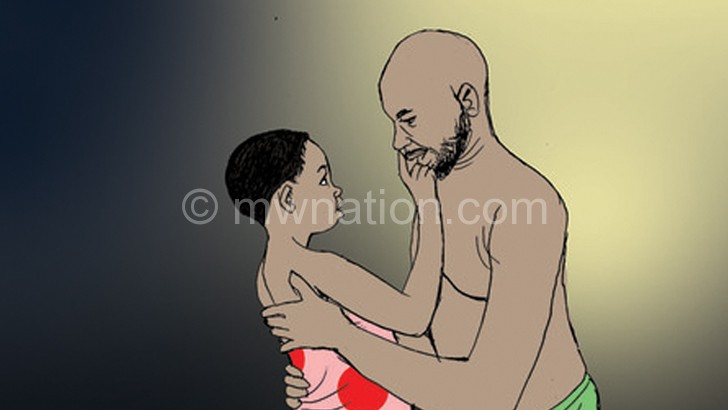‘Sex with a girl below 16 is a crime’
A week hardly passes in the country without hearing about cases of abuse against the girl child, especially defilement. This is happening despite the country having the Child Care, Justice and Protection Act of 2010, which is regarded as a progressive law in protecting the Malawian child. In this interview with our Mzuzu Bureau supervisor JOSEPH MWALE, Child Justice Court Magistrate in Mzuzu, senior resident magistrate George Major Mbewe explains, among others, why these child abuse cases are still on the increase.

What are the cases that mostly come to your court?
There are numerous cases that come to our court and indeed you find that where cases are involving children, more specifically dealing with child rights violations, then it’s the little girls whose rights are really being violated because when you talk of the boys, more often than not, they do come as breakers of the law, like children in conflict with the law. But where girl-children are concerned, then it is more often that their rights have been violated, maybe they are victims of defilement or they are not being maintained by their parents and cases of such nature.
Why do you think we have more cases of violations against the girl child?
To begin with, I think its embedded in our cultural traditions whereby if you look back you find that more preference in terms of allocation of resources has for so long been given to the boy child. For instance, on school fees, if the family is poor, parents would probably prioritise the boy child because the mindset is that this little girl will end up getting married but it is believed that at one point or the other, boys will become heads of their families, bread winners and so preference on resource allocation is given to the boys.
Similarly, for quite a long time, there are certain things that have not been regarded as violations of child rights, but now with the coming in of the Child Care, Justice and Protection Act of 2010, we have started seeing that such things are actually violations of child rights. But then people out there in the rural areas and indeed in the urban areas are not yet aware that such kinds of things constitute violations of child rights.
People in rural areas have been complaining of lacking access to justice due to the long distance they have to travel to Mzuzu to access the Child Justice Court. How are you going to take the court closer to the people?
The court has already started sitting in rural areas. For the past few weeks we have been to several areas like Mpherembe and Kafukule in Mzimba, Lusangazi in Mzuzu and Kavuzi in Nkhata bay. The court would sit where the crime has been committed, when it’s been moved and all the processes have to be followed. The matter has to be reported to police and in the case of child rights violations, then the child prosecutors will make a follow up, they will make their investigations and then they will bring the file to court. Once the file has been brought to court, then we identify resources, and then we communicate to all concerned parties and the court will convene right at the place where the offence has been committed.
Resource wise, do you find that sustainable?
I will be very honest with you, as a court we do not have the resources, that is why we are in partnership with organisations such as Plan Malawi, the Church and Society of the Livingstonia Synod of the CCAP and Centre for Child Rights to make this sustainable, otherwise on our own we cannot manage.
You have been to rural areas, how much is the problem of abuse against the girl child?
One thing that I have noted is that we still need to do a lot in the area of sensitisation, because, I will give you an example, the Child Care Justice and Protection Act is a 2010 piece of law, so we are now talking of six years from the time it came into force, but you find that many people are not aware of it. It is a very progressive piece of law but you find that many people are not aware; perpetrators of offences, parents even the children themselves, they have to be sensitised on what is contained in this new law because they are certain things which are regarded as part and parcel of cultural traditions.
We continue to see many cases of defilement, and sometime you hear culprits arguing that they had actually agreed with the girls to have sex. Enlighten us on the defilement law and the child, what does it say?
When we talk of defilement, we are talking of having sexual intercourse with a child. As far as the Penal Code is concerned, Section 138 (1), we are talking of any female person who is below the age of 16. Whether there is consent or not, the law does not take into consideration that there was consent because a child is a child and in as far as the law is concerned, that little girl does not have the capacity to consent. It is as good as seeing a little child of maybe three or four years playing with a knife and you are trying to take it away from him and the baby is crying for it and you okay it. You have to decide to play with the knife. But once that child is injured, you will not be seen to be a reasonable person to argue that the baby wanted to play with the knife. n





